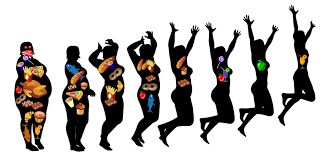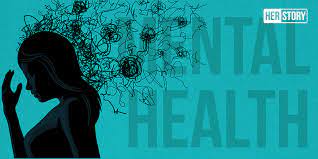Your body image is what you think and how you feel when you look in the mirror or when you picture yourself in your mind. This includes how you feel about your appearance; what you think about your body itself, such as your height and weight; and how you feel within your own skin. Body image also includes how you behave as a result of your thoughts and feelings. You may have a positive or negative body image. Body image is not always related to your weight or size.
Why is a healthy body image important?
Women with a positive body image are more likely to have good physical and mental health. Girls and women with negative thoughts and feelings about their bodies are more likely to develop certain mental health conditions, such as eating disorders and depression. Researchers think that dissatisfaction with their bodies may be part of the reason more women than men have depression.
A negative body image may also lead to low self-esteem, which can affect many areas of your life. You may not want to be around other people, or may obsess constantly about what you eat or how much you exercise. But you can take steps to develop a healthier body image.

Are some people more likely to develop a negative body image?
Yes. Girls are more likely than boys to have a negative body image. This may be because many women in the United States feel pressured to measure up to strict and unrealistic social and cultural beauty ideals, which can lead to a negative body image.
White girls and young women are slightly more likely to have a negative body image than African-American or Hispanic girls and young women.5 However, cultural beauty ideals change over time, and it can be difficult to correctly measure a complicated idea like body image among women from different backgrounds.6 Children of parents who diet or who have a negative body image are also more likely to develop unhealthy thoughts about their own bodies.
Why are women so focused on body image?
It's important to avoid making sweeping generalizations about any group of people, including women, as individuals have diverse experiences and perspectives. However, discussions about body image and societal pressures often come up in conversations involving women because of several complex factors:
1. Media Influence: Media, including advertising, magazines, television, and social media, often promote unrealistic beauty standards that disproportionately affect women. These images can create a sense of inadequacy and pressure to conform to certain ideals.
2. Social Comparison: Humans, in general, tend to compare themselves to others. In a society that places a significant emphasis on appearance, women may feel compelled to assess how they measure up to these standards.
3. Peer Pressure: Women may face peer pressure from friends, family members, or acquaintances who comment on their appearance or make judgments based on it.
4. Health and Well-being: For many women, concerns about body image are linked to health and well-being. Maintaining a healthy weight, eating a balanced diet, and staying active are important aspects of overall health.
5. Psychological Factors:Body image issues can be tied to psychological factors such as self-esteem and self-worth. Negative body image can lead to mental health challenges like depression and anxiety.
6. Historical and Cultural Context: Societal and cultural factors play a significant role. Different cultures have varying ideals of beauty, and these ideals can change over time.
7. Economic Interests: The beauty and fashion industries are enormous, and they profit from promoting certain beauty standards and products. They often reinforce the importance of appearance.
It's essential to remember that not all women are preoccupied with body image, and many actively challenge societal beauty norms. There is a growing movement advocating for body positivity and acceptance, encouraging individuals, regardless of their gender, to embrace their bodies and focus on their overall well-being and self-worth rather than conforming to external standards.
Living with a mental health condition
Women with mental health conditions face unique challenges. A mental health condition can make hormonal changes during your menstrual cycle and pregnancy worse. Some mental health conditions can make it harder to get pregnant. Living with a mental health condition also means knowing how to care for all aspects of your life. This includes knowing how you are protected under law at your job. You can learn ways to live well with and treat a mental health condition to lead a full life.

How does my mental health condition affect my menstrual cycle?
Throughout your monthly menstrual cycle, levels of certain hormones rise and fall. These hormone levels can affect how you think and feel mentally and physically.
Mental health conditions can cause period problems or make some period problems worse:
- Premenstrual syndrome (PMS). Most women have some symptoms of PMS in the week or 2 before their period. PMS can cause bloating, headaches, and moodiness. Women with depression or anxiety disorders may experience worse symptoms of PMS. Also, many women seeking treatment for PMS have depression or anxiety. Symptoms of these mental health conditions are similar to symptoms of PMS and may get worse before or during your period. Talk to your doctor or nurse about ways to relieve PMS symptoms.
- Premenstrual dysphoric disorder (PMDD). PMDD is a condition similar to PMS but with more severe symptoms, including severe depression, irritability, and tension. Symptoms of PMDD can be so difficult to manage that your daily life is disrupted. PMDD is more common in women with anxiety or depression. Talk to your doctor about ways to help if you experience worse symptoms of depression or anxiety around your period.
- Irregular periods. Studies show that women with anxiety disorder or substance use disorder are more likely to have shorter menstrual cycles (shorter than 24 days). Irregular cycles are also linked to eating disorders and depression.4 Women with bipolar disorder are also twice as likely to have irregular periods.


You must be logged in to post a comment.